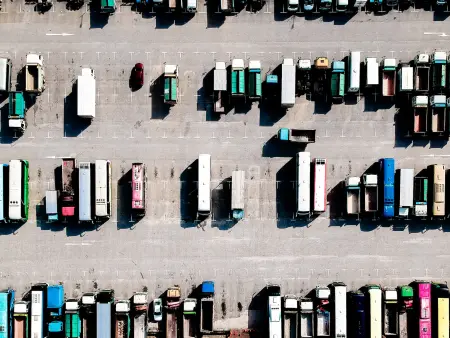Has your business been affected by ocean shipping issues over the past year? After coping with the aftermath of the COVID-19 pandemic last year, the shipping industry is ready to take on the challenges of 2023, and beneficial cargo owners (BCOs) are no exception.
As a BCO, it’s your job to ensure that all imported items arrive at their final destination in good condition. In this blog, we will discuss the trends affecting Beneficial Cargo Owners in 2023.
Increase in 20 ft. Containers
Despite widespread speculation to the contrary, Drewry predicts that production of twenty-foot containers will increase in 2023, ensuring that they will continue to account for at least 25% of the world’s container fleet for the coming year. Even though the typical 20-foot dry freight container has seen its share of the worldwide equipment pool decrease over the previous decade, Drewry claims its status in the fleet is stable.
BCOs will breathe a sigh of relief as the scarcity of 20-foot containers over the previous two years has prompted some to worry if the container size is indeed becoming obsolete.
Less Congestion at Ports and Lower Shipping Costs
After years of seeing freight costs steadily climb, BCOs are seeing some relief. Freightos Baltic Indicator, a worldwide container freight index, reports that the average cost to carry a container around the world is $2,238, down from $9,293 in December 2021.
Furthermore, ports have improved their backlog management. All major ports are seeing ships arrive and depart on schedule. In fact, only eight vessels were listed as delayed on the arrival manifest at the Long Beach and Los Angeles ports. The number of ships stuck in port has decreased from an all-time high of 109 in January 2022, thanks partly to improved queuing procedures. Because of this, cargo ships can travel more quickly. Although there is still a chance that disruptions in the supply chain will affect BCOs, this may become less of an issue.
An Emphasis on Sustainability
Changes in global perspectives on sustainability have been substantial in recent years, and they will remain a key trend in the freight forwarding and BCO sectors in 2023. According to a survey by the Economist Intelligence Unit, the number of online inquiries about eco-friendly products has surged by 71% since 2016.
According to the Sustainable Freight Buyers Alliance, cargo transportation currently contributes 8% of global CO2 emissions and is expected to climb to 42% by 2050. Freight forwarders like BCOs have significant power and can aid in the logistics industry’s transformation to more sustainable practices. We can help move the needle and lower emissions by selecting environmentally friendly transport options.
Wrapping Up
There is hope that BCOs have finally weathered the brunt of the interruptions that have plagued the freight forwarding industry in recent years. However, new hurdles will arise as the old ones are overcome. Part of the solution will be to grasp the trends in the freight forwarding industry and be ready for any situation. If you stay on top of the latest developments in the industry, you’ll be able to streamline operations and provide superior service to your customers.
Get in touch with Jansson today to learn about freight forwarding trends. We are a reliable, independent Landstar agent that provides various transport solutions.




